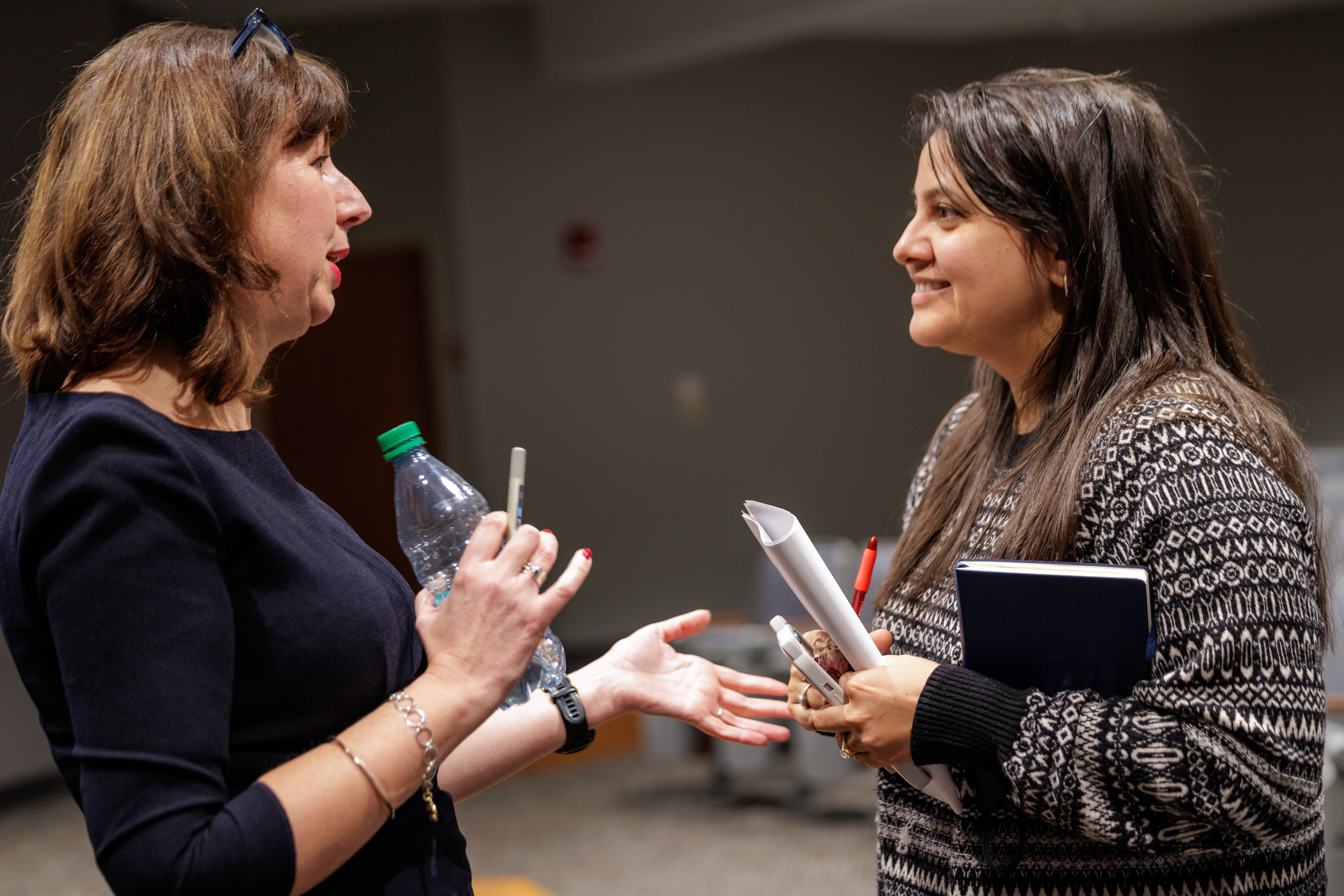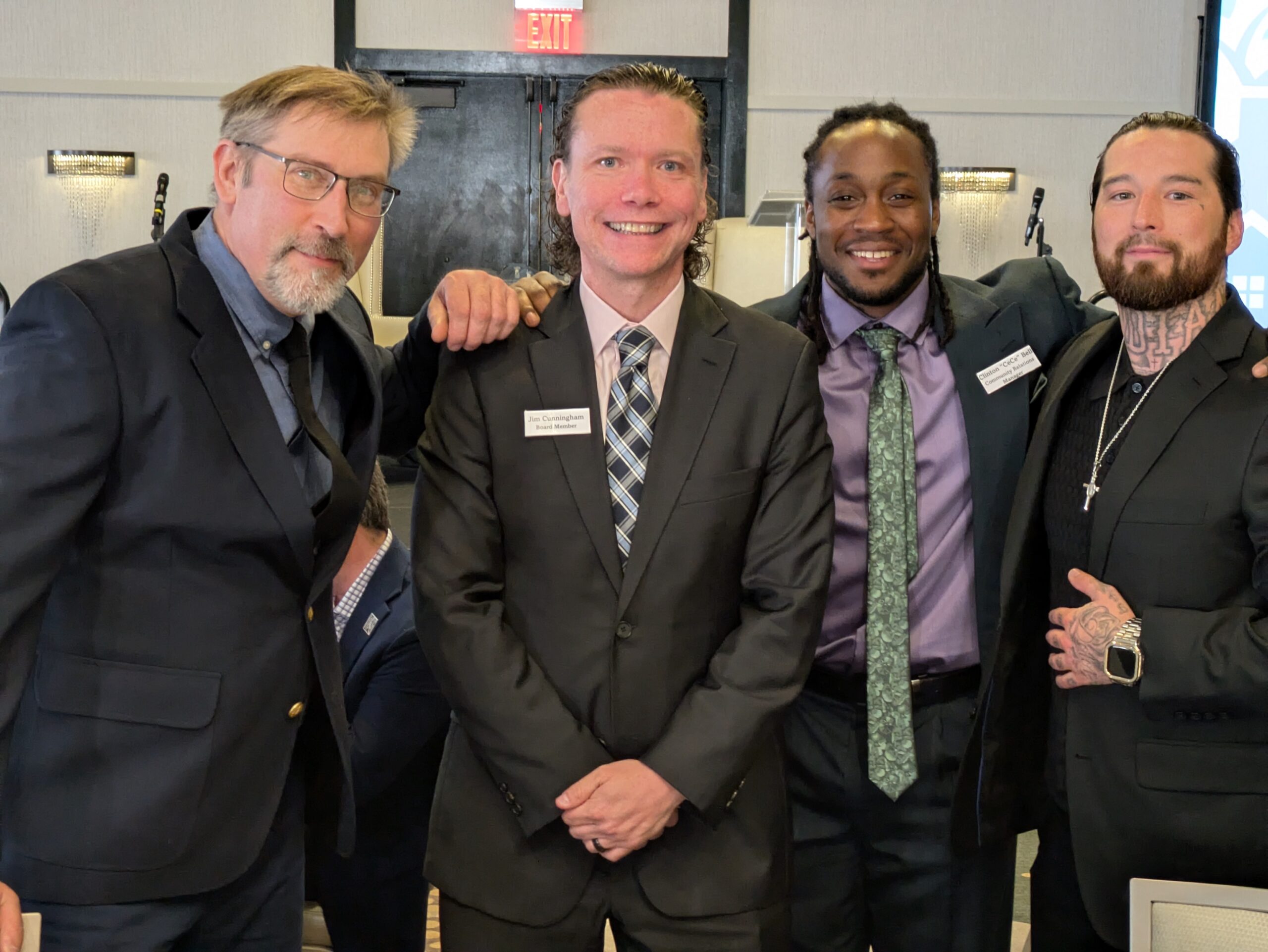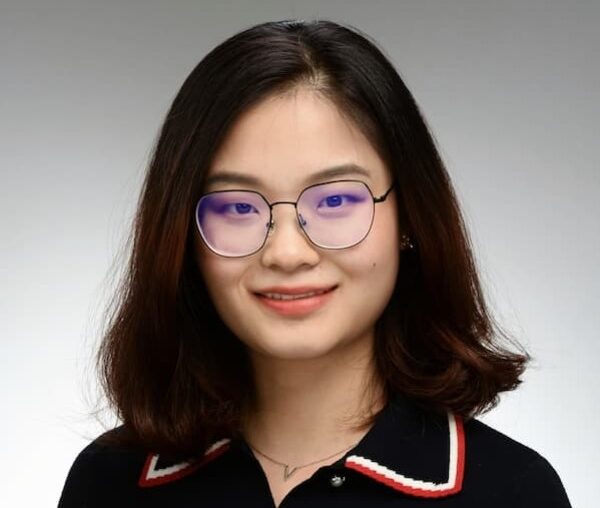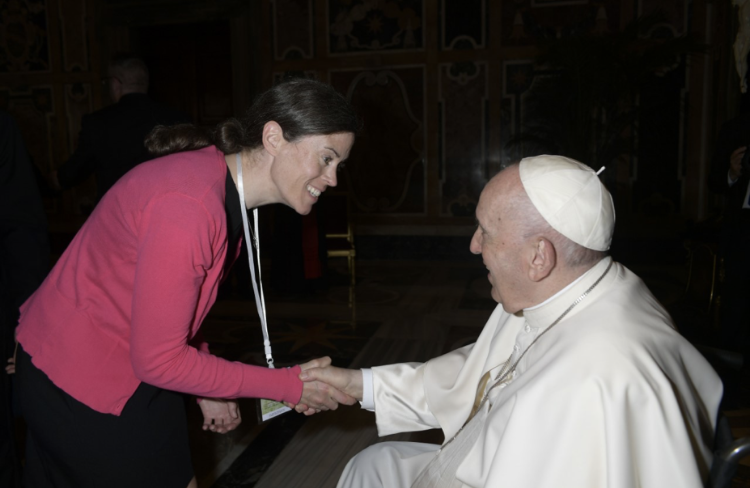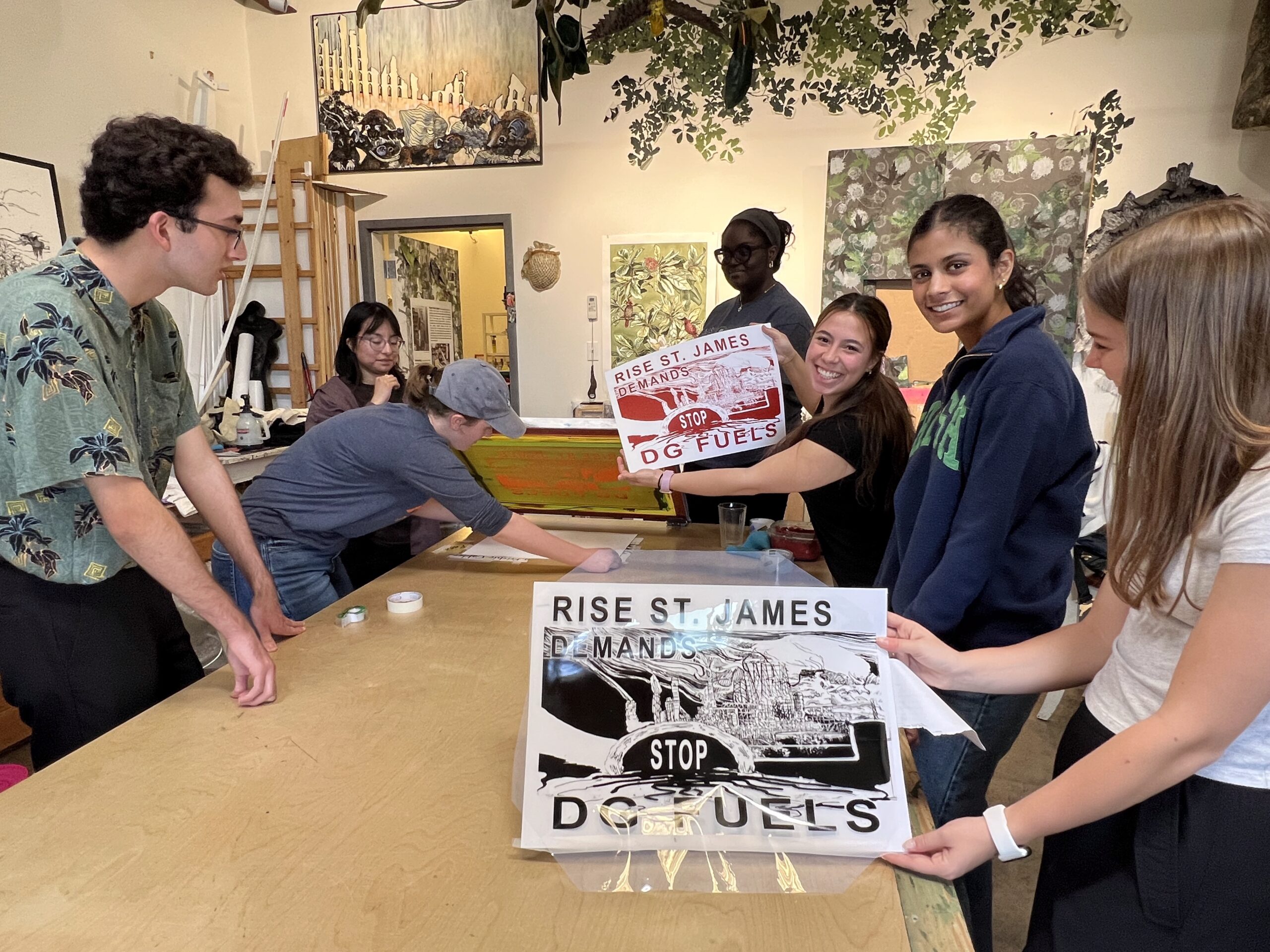“Windows of hope”
NDPEP’s reentry work pursues holistic thriving for returning citizens
May 14, 2025
On a cold day in February, Daniel Scarpinato walked out of Westville Correctional Facility after serving 13 years in prison. Even after earning his bachelor’s degree from the Moreau College Initiative (MCI), Daniel knew the cards were stacked against him.
“When you’re leaving prison, if you don’t have any money, you’re going to end up homeless,” Daniel said. “That’s just as simple as it gets.”
In addition to facing housing and financial challenges, Daniel described the uphill battle he faced finding employment and catching up with advances in technology. “There was a lot of anxiety because I don’t know how to set up LinkedIn. I don’t know how to set up Indeed. I don’t know how to do ZipRecruiter,” he shared. “Technology is just advancing so fast that, if you missed 13 years, I don’t care if you have a master’s degree or a Ph.D., you’re not going to come out to society and just automatically be in sync.”
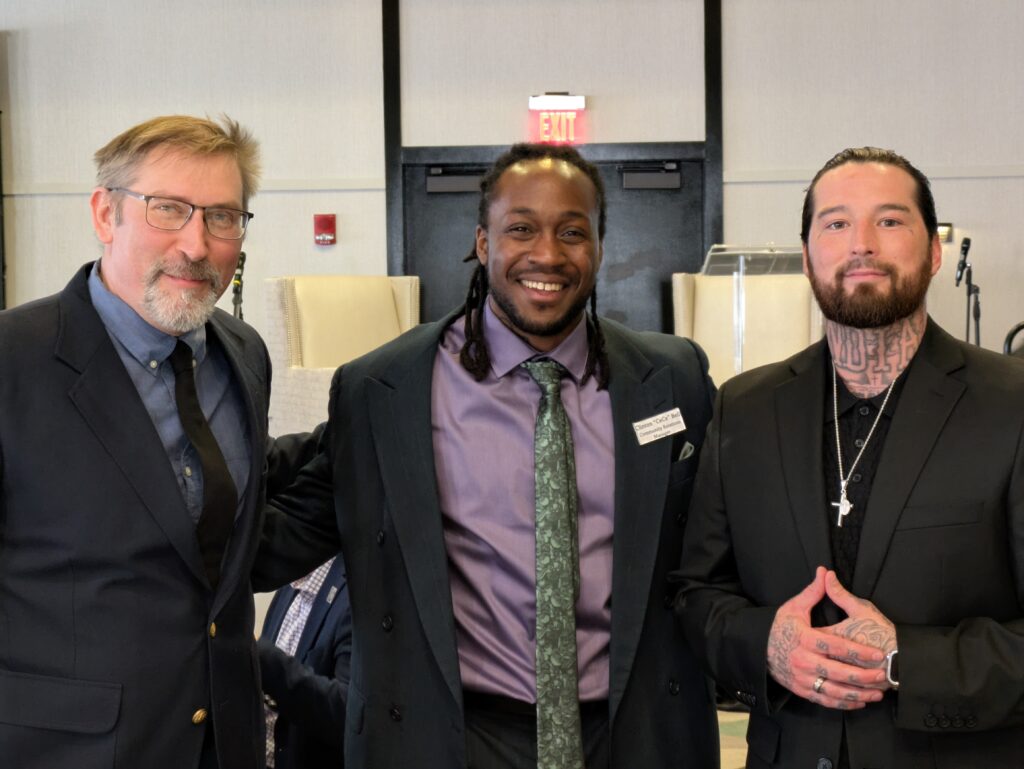
These sentiments are shared by Michael Chaney, who got out of Westville in January after being incarcerated for seven years, and Clinton “CeCe” Bell who graduated in March from the program at Dismas House of Indiana, a home for people in transition from prison, after being in and out of prison since he was 17 years old.
“It’s very difficult coming out here without employment because you’re burning through your money and then you need a job at the same time,” Daniel explained. Given these nearly insurmountable challenges for reentering citizens, he described their outlook in a word: hopeless. “How do you keep people from losing hope when you’re sending them to a place that’s hopeless?”
At the Institute for Social Concerns, the reentry work of Notre Dame Programs for Education in Prison (NDPEP) is designed to cultivate hope for reentering citizens like Daniel, Michael, and Clinton. Its holistic approach to reentry grows out of the institute’s rootedness in Catholic social tradition and its emphasis on encounter, proximity, solidarity, and human dignity. As reentry program director Jim Cunningham described, “The institute’s approach to reentry isn’t simply about finding jobs for reentering citizens. It is about treating reentering citizens as whole persons and seeking their flourishing in society.”
According to the Indiana Department of Correction (IDOC), more than 12,000 people are released from Indiana prisons each year. Over two-thirds of these people return to prison within three years of release, and this number increases to 60 percent for individuals who remain unemployed. More than 70 percent of those released are parents, whose children are likely to obtain similar or less education than their parents, are most likely to be in the lowest 5 percent of income earners, and are more likely to commit crimes than children of parents who have not been incarcerated. Moreover, a study from the National Institutes of Health finds that the risk of death within the first two weeks of release is 12.7 times that of other residents.
“How do you keep people from losing hope when you’re sending them to a place that’s hopeless?”
Despite these figures, resources for reentering citizens in Indiana are sparse. While IDOC offers the Hoosier Initiative for Re-Entry (HIRE) program, its focus is exclusively on job placement. In contrast, NDPEP’s holistic reentry work involves collaborations with local organizations like Dismas House and the Upper Room Recovery Community to provide wrap-around support for reentering citizens.
Last year NDPEP also hosted 13 workshops at Westville Correctional Facility—and two at the Indiana Women’s Prison—on how to develop life skills and attitudes to successfully overcome the many barriers to reentry. This work also includes panels for mock interviews and symposia where business owners and community leaders tell the story of their businesses or offer advice on life skills, such as how to present oneself in an interview setting. These talks are designed not only to prepare students for life after reentry but also to provide direct ties to the community even before they reenter.
But the workshops and symposia are just the beginning of NDPEP’s reentry work. As the next phase of reentry work, NDPEP staff host weekly substance use recovery meetings and connect one-on-one with reentering citizens to personally mentor them through their reentry journey. Last year, this included nearly 100 one-on-one meetings with MCI students and alumni. This mentorship is not simply about providing help with life skills; it also involves processing the traumas of incarceration and finding healing and hope on the other side.
“Jim was there to help me transition through the discomfort of reentry,” Daniel shared. “He helped me set up a LinkedIn account and an Indeed profile, but he also gave me his phone number and said, ‘Hey, if anything happens, call my number. Tell me what the problem is. I’ll help you fix it.’”
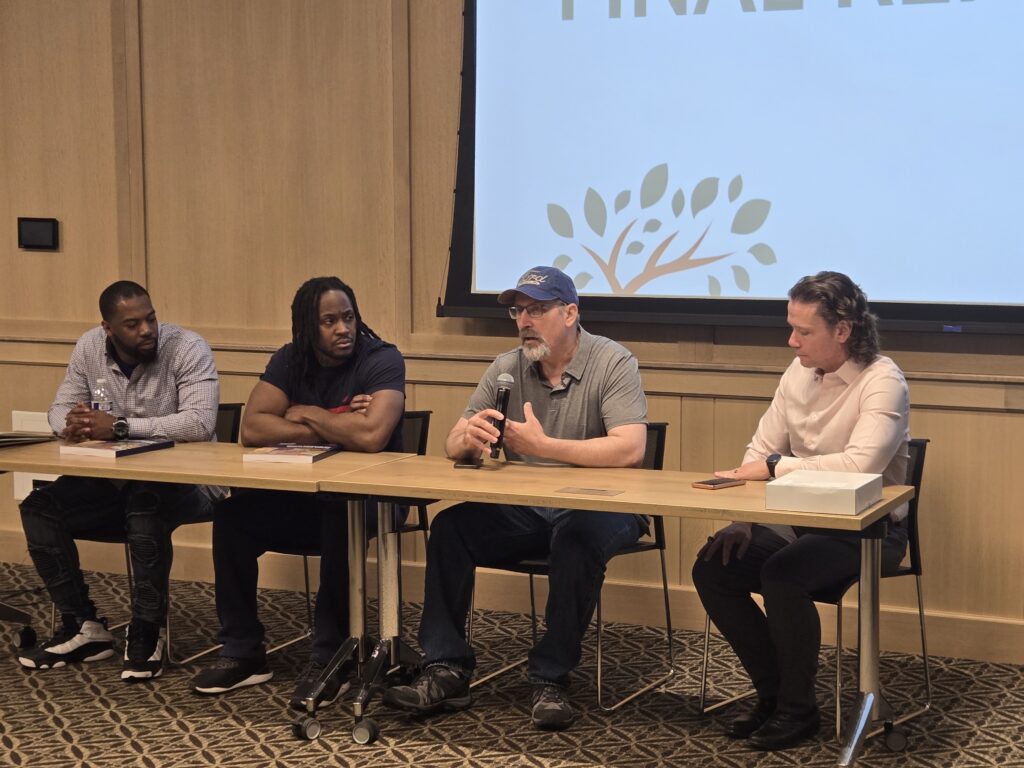
NDPEP staff not only helped Michael with his résumé but also gave him a tour of Notre Dame, complete with meetings with several professors to get their input on how furthering his education could benefit Michael in the marketplace.
Clinton connected with NDPEP’s reentry work as a resident at Dismas House. Through this connection, he was able to find a job at a local solar panel company, which Clinton credits as the “catalyst for moving forward and getting out to the community.”
In March, Clinton graduated from the Dismas House program and was hired as their community relations manager. In this role, he reviewed a draft of the 294-page NDPEP Reentry Guide for Returning Citizens published by the institute.
“It was amazing,” Clinton recalled. Having seen a number of reentry guides in his time in prison and at Dismas House, he said that the NDPEP guide was the most in-depth guide he had seen. “I’ve never seen an empathetic resource guide like this,” he said. “This is gonna help a lot of people.” Not only is the guide available in print and online, but the electronic version has also been added to 20,000 tablets at correctional facilities statewide so it can reach each one of the 12,000 reentering citizens each year.
Through the reentry work of NDPEP, reentering citizens have gone on to careers in both the for-profit and nonprofit sectors. This has included management positions at corporations like Mike and Dave’s Pro Marine, ClearWater Renovations LLC, and Crossroads Solar. In addition, three reentering citizens have gone on to found their own nonprofits to work with at-risk youth or fellow reentering citizens in order to address the systemic barriers that lead to incarceration and recidivism at the human level.
“There can’t be sentences without windows of hope.”
Daniel received his bachelor of arts through MCI and now works at a well-paying union job in his hometown of Portage, Indiana. He ascribes his success to NDPEP and, in particular, to having realistic, difficult conversations with staff on how to create a plan for life after reentry. “I’m extremely humble and appreciative,” he stated. Without NDPEP, he says, “I’m not sure I would have the confidence to come out.”
For Clinton, the institute’s reentry work is more than just helping returning citizens find a job. “What you do here is you empower them,” he stated. Clinton explained that NDPEP’s “holistic approach” is about facilitating intellectual, moral, and spiritual transformation until returning citizens are indistinguishable from those who have not been incarcerated.
According to Clinton, the institute’s reentry work uplifts not only reentering citizens but also the community as a whole. “The work that the institute is doing is so important,” he stated, because putting energy into returning citizens empowers them to believe “they can add to community building.” While studying communications at Indiana University South Bend, Clinton is giving back to the community by serving on the boards of Milkweed Gardens, Inc., the Monroe Park Neighborhood Association, and Odom Community Developers.
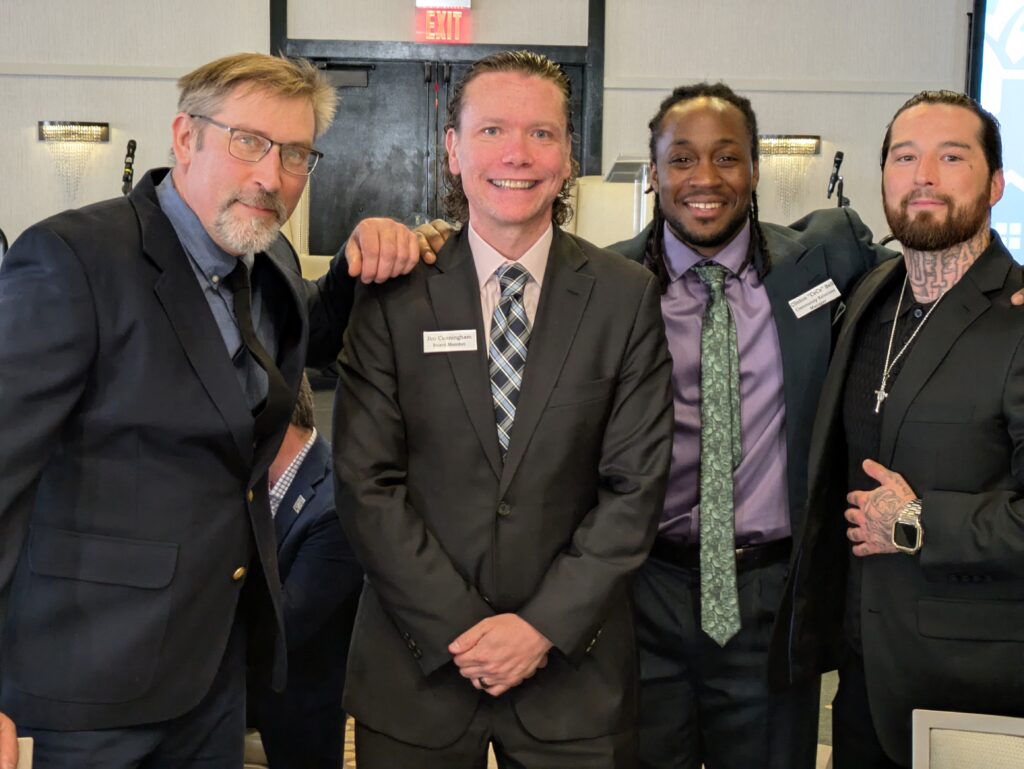
Michael also received his bachelor of arts through MCI and will walk at Holy Cross’s graduation on May 17. He now has a well-paying job as a welder for a custom food truck manufacturing company. In his spare time he volunteers at Holy Cross’s MCI office, organizing the office space and maintaining the book catalog, and helps facilitate Narcotics Anonymous meetings at the South Bend Community Re-entry Center. “Everything so far is looking up,” he said.
Michael credits his success to the NDPEP’s holistic approach. In addition to helping him find stable housing and employment, Michael’s meetings with NDPEP staff helped him find a renewed outlook on life.
“Personal interactions with my family have improved,” he said. “It seems like before I was incarcerated, I always had some sort of driving anger, and I couldn’t really put my finger on where it came from. But after the school, the process, and after meeting Jim and the instructors and all MCI, I’ve come to realize that regrets and things in the past—I just need to let those things go. Because of doing things in a different way and seeing that the world is not out to get me, like a lot of people who are locked up think, I have changed my attitude, and I think that’s helped me along to get this far.”
At one of his many visits to prison throughout his papacy, Pope Francis stated, “It’s right that those who have made a mistake pay for their mistake, but it’s even more right that those who have done wrong should be able to redeem oneself from their mistake. There can’t be sentences without windows of hope.” Inspired by Pope Francis’s emphasis on justice and mercy for those who are incarcerated, the institute’s reentry work is about doing just that: providing windows of hope by investing in reentering citizens and researching and applying best practices to give them the tools they need to not just survive but thrive on the outside. Through people like Daniel, Michael, and Clinton, that investment is already paying dividends.
Related Stories
-
Toward a culture of encounter—Lecture series engages Pope Francis, Catholic social tradition
-
“Windows of hope”—NDPEP’s reentry work pursues holistic thriving for returning citizens
-
ReSearching for the Common Good: Yunyan Zhao
-
Remembering Pope Francis—Institute faculty reflect on the pope’s influence on their work
-
Pursuing justice by getting proximate—Students explore themes of proximity, natality, and rootedness in spring break seminars

